|
Books Should Be Free Loyal Books Free Public Domain Audiobooks & eBook Downloads |
|
|
Books Should Be Free Loyal Books Free Public Domain Audiobooks & eBook Downloads |
|
Philosophy Books |
|---|
|
Book type:
Sort by:
View by:
|
By: Maria Montessori (1870-1952) | |
|---|---|
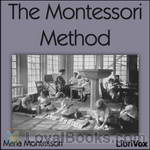 The Montessori Method
The Montessori Method
In the early 1900’s Dr. Maria Montessori began to reform educational methods with her work the ‘Case dei Bambini’ in Rome, Italy. Montessori began her work by developing methods to educate mentally retarded children, the method she developed was used with several children who at age eight took the state examinations in reading and writing, the children passed with above average scores. Because of this success (which is known as the ‘first Montessori Miracle’) Dr. Montessori was asked to open a school for children in Rome which she did... | |
By: Mary Everest Boole (1832-1916) | |
|---|---|
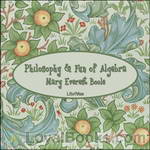 Philosophy and Fun of Algebra
Philosophy and Fun of Algebra
Mary Everest Boole (1832-1916) was born Mary Everest in England and spent her early years in France. She married mathematician George Boole. She was the author of several works on teaching and teaching mathematics in particular. This short book, Philosophy and Fun of Algebra, is meant to be read by children and introduces algebra and logic. She uses the word “algebra” broadly, defining it as a “method of solving problems by honest confession of one’s ignorance”. Using this definition, Boole introduces, in a conversational manner, the concepts of logic and algebra, illustrating these concepts with stories and anecdotes, often from biblical sources... | |
By: Mary Wollstonecraft (1759-1797) | |
|---|---|
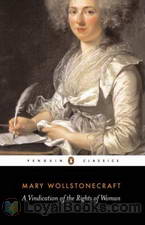 A Vindication of the Rights of Woman
A Vindication of the Rights of Woman
Regarded as the one of the earliest examples of feminist philosophy, A Vindication of the Rights of Woman is written as a direct response to Charles Maurice de Talleyrand-Périgord, a French politician who delivered a report to the French National Assembly suggesting that women should only receive domestic education and additionally encourages women to stay clear of political affairs. In her treatise, Wollstonecraft avidly criticizes this inadequate perception of women as an inferior sex and attacks social inequality, while also arguing for women’s rights in the hope of redefining their position both in society and in marriage... | |
By: Max Heindel (1865-1918) | |
|---|---|
 The Rosicrucian Mysteries
The Rosicrucian Mysteries
A primer for those interested in the basic philosophy, beliefs & secrets of the Rosicrucians. | |
By: Max Stirner (1806-1856) | |
|---|---|
 The Ego and His Own
The Ego and His Own
In this book, his most famous, Max Stirner presents a philosophical case for a radical egoism that shuns the socially-oriented outlooks of both "establishment" ideologies and of revolutionaries in favor of an extreme individualism. The book is most widely talked about today only through the lens of other philosophers' thought: Karl Marx and Friedrich Engels launched a famous assault on it in The German Ideology, and some draw a connection between Stirner's thoughts here and Nietzsche's egoism a generation later. But it is worth reading in its own right, as much for its lyricism as the challenge of its philosophical proposals. | |
By: Maximilian Schele De Vere (1820-1898) | |
|---|---|
 Modern Magic
Modern Magic
M. Schele de Vere was born in Sweden in 1820 and studied language in Germany before eventually becoming a professor of modern language at the University of Virginia in 1844 where he would teach for more than 50 years. During his time as a professor, he would write many books, mostly focusing on language. One of his last works, being first published in 1873, "Modern Magic" instead focuses on the occult. From the preface: "The main purpose of our existence on earth—aside from the sacred and paramount... | |
By: May Sinclair (1863-1946) | |
|---|---|
 Defence of Idealism
Defence of Idealism
The philosophy of Idealism, revived in eighteenth-century Europe by George Berkeley, argued against philosophical materialism by maintaining that Reality is a creation of the Mind. Despite its flourishing under the leadership of Hegel, Fichte, Schopenhauer, and Schelling, Idealism had definitely fallen into decline late in the nineteenth century and early in the twentieth. May Sinclair, the writer of many popular but philosophically provocative novels and part-time World War I ambulance corps-person, was an unlikely one to take up the torch of the old school and try to revive it yet again for the twentieth century... | |
By: Michel Eyquem de Montaigne (1533-1592) | |
|---|---|
 Essays, Book 1
Essays, Book 1
Michel Eyquem de Montaigne is one of the most influential writers of the French Renaissance, known for popularising the essay as a literary genre and is popularly thought of as the father of Modern Skepticism. He became famous for his effortless ability to merge serious intellectual speculation with casual anecdotes and autobiography—and his massive volume Essais (translated literally as "Attempts") contains, to this day, some of the most widely influential essays ever written. | |
By: Mikhail Bakunin (1814-1876) | |
|---|---|
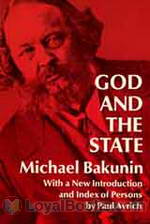 God and the State
God and the State
Bakunin’s most famous work, published in various lengths, this version is the most complete form of the work published hitherto. Originally titled “Dieu et l’état”, Bakunin intended it to be part of the second portion to a larger work named “The Knouto-Germanic Empire and the Social Revolution” (Knouto-Germanic Empire is in reference to a treaty betwixt Russia and Germany at the time), but the work was never completed. (from book introduction) | |
By: Mírzá Abu’l-Fadl Gulpáygání (1844-1914) | |
|---|---|
 The Brilliant Proof (Burhäne Lämé) in reply to an attack upon the Bahai Revelation by Peter Z. Easton
The Brilliant Proof (Burhäne Lämé) in reply to an attack upon the Bahai Revelation by Peter Z. Easton
“In these days,” writes the renowned Bahá’í scholar, Mírzá Abu’l-Fadl, “which are the latter days of 1911, A. D. and the early days of 1330 A. H., I have seen a curious article which astonished me. What did I see? I find that one of the missionaries of the Protestant sect, who accounts himself among the learned men of the twentieth century, a helper of the pure religion of Christ and one of the civilized and cultured occidentals, by name, Peter Z. Easton, has been so provoked by jealousy... | |
By: Nagarjuna | |
|---|---|
 She-rab Dong-bu (The Tree of Wisdom)
She-rab Dong-bu (The Tree of Wisdom)
The She-rab Dong-bu (Tree of Wisdom) is a metrical translation in Tibetan of a Sanscrit ethical work entitled Prajnya Danda, written by Nagarjuna who flourished in the fourth century of the Buddhist era (about 100 B.C.), The Tibetan version was probably made about the 11th century of our era but the exact date has not been determined. It is included in the Ten-gyur, ངོ་ section, volume གོ་, beginning at leaf 165. The Tibetan translator describes it as the second volume but I cannot say whether the remainder of the work has been preserved in Tibetan – the Sanscrit original is apparently lost. | |
By: Okakura Kakuzo (1863-1913) | |
|---|---|
 The Book of Tea
The Book of Tea
The Book of Tea was written by Okakura Kakuzo in the early 20th century. It was first published in 1906, and has since been republished many times. – In the book, Kakuzo introduces the term Teaism and how Tea has affected nearly every aspect of Japanese culture, thought, and life. The book is noted to be accessibile to Western audiences because though Kakuzo was born and raised Japanese, he was trained from a young age to speak English; and would speak it all his life, becoming proficient at communicating his thoughts in the Western Mind... | |
By: Omar Khayyám (1048-1131) | |
|---|---|
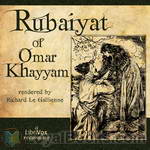 Rubáiyát of Omar Khayyám (Le Gallienne)
Rubáiyát of Omar Khayyám (Le Gallienne)
Richard le Gallienne was an English poet and critic, who, although unfamiliar with the Persian language, had a profound interest in the Rubaiyat of Omar Khayyam. In 1897 he published a collection of 211 quatrains, which was based on earlier English translations, in particular the prose version by Justin Huntly McCarthy. A expanded edition, containing fifty additional quatrains was published in 1901, and this has been used for the present recording. | |
 Quatrains of Omar Khayyam of Nishapur
Quatrains of Omar Khayyam of Nishapur
In 1906, Eben Francis Thompson,scholar and poet, published a limited edition of his translation of the Quatrains of Omar Khayyam. This edition contains 878 quatrains, and represents the most extensive translation of Omar's rubai in any language.In the Introduction, Nathan Haskell Dole writes: Mr Thompson has put into English verse this whole body of Persian poetry. It is a marvel of close translation, accurate and satisfactory. He has succeeded in doing exactly what he set out to do - to add nothing and to take nothing away, but to put into the typical quatrain, as determined by Fitzgerald and others, exactly what Omar and his unknown imitators said. | |
By: Patanjali | |
|---|---|
 The Yoga Sutras of Patanjali
The Yoga Sutras of Patanjali
Yoga sutras by Patanjali is a seminal work in yoga, this book is more about control of mind and the true goal of yoga. The sutras are extremely brief, and the translation in neat English makes it very easy for people to understand the ancient Sanskrit text. It starts with the birth and growth of spiritual man through the control of mind. In all, this is a "all in one" book for yoga philosophy written by the master himself. | |
By: Patrick Henry (1736-1799) | |
|---|---|
 The Anti-Federalist Papers
The Anti-Federalist Papers
During the period of debate over the ratification of the Constitution, numerous independent local speeches and articles were published all across the country. Initially, many of the articles in opposition were written under pseudonyms, such as “Brutus”, “Centinel”, and “Federal Farmer”. Eventually, famous revolutionary figures such as Patrick Henry came out publicly against the Constitution. They argued that the strong national government proposed by the Federalists was a threat to the rights of individuals and that the President would become a king... | |
By: Peter Kropotkin (1842-1921) | |
|---|---|
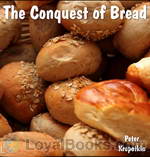 The Conquest of bread
The Conquest of bread
In this work, Kropotkin points out what he considers to be the fallacies of the economic systems of feudalism and capitalism, and how he believes they create poverty and scarcity while promoting privilege. He goes on to propose a more decentralised economic system based on mutual aid and voluntary cooperation, asserting that the tendencies for this kind of organisation already exist, both in evolution and in human society. | |
By: Philip Stanhope, 4th Earl of Chesterfield | |
|---|---|
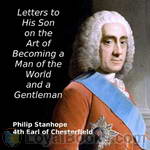 Letters to His Son on the Art of Becoming a Man of the World and a Gentleman
Letters to His Son on the Art of Becoming a Man of the World and a Gentleman
Philip Stanhope, Earl of Chesterfield, was at one time Ambassador to the Hague, negotiated the second Treaty of Vienna, was a founding governor of London’s Foundling Hospital, Lord-Lieutenant of Ireland, and Secretary of State. Having no legitimate children, his heir was his third cousin (another Philip) whom he adopted. Although known as a hard, calculating man, he is most well known for his letters to his natural son (i.e., illegitimate son) (also called Philip). When Philip died in 1768, the letters are addressed to his grandchildren (Philip’s two sons, Charles, and, yes, Philip!)... | |
By: Plato (427-347) | |
|---|---|
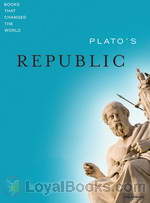 Plato's Republic
Plato's Republic
Plato's Republic is a Socratic dialogue which deals mainly with the definition of justice, the characteristics of a just city state and the just man. Although it was written more than two thousand years ago, many of the ideas and thoughts expounded here are still very much relevant to modern society. This is Plato's best known work and is also considered his most influential especially when it comes to the fields of philosophy and political theory. The Republic is divided into ten books and in each book Socrates discusses different topics from the immortality of the soul to the meaning of justice with his disciples like Glaucon, Thrasymachus, Adeimantus and others... | |
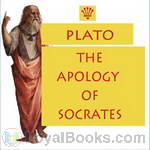 The Apology of Socrates
The Apology of Socrates
More than two thousand years ago, the great Greek philosopher Socrates was condemned to death for making seditious comments against the city state of Athens. His followers and disciples were legion. Ranging from Xenophon, the mercenary warrior and historian of the Peloponnesian War to the scholarly Plato, Socrates was described as the conscience-keeper of the nation, or the “gadfly” who would not let the massive machinery of the state rest in complacence. The Apology of Socrates by Plato was thought to have been written following Socrates trial and death in 399 BC... | |
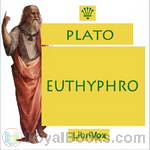 Euthyphro
Euthyphro
Awaiting his trial on charges of impiety and heresy, Socrates encounters Euthyphro, a self-proclaimed authority on matters of piety and the will of the gods. Socrates, desiring instruction in these matters, converses with Euthyphro, but as usual, the man who professes to know nothing fares better than the man who claims to be an expert. One of Plato’s well-known Socratic Dialogues, Euthyphro probes the nature of piety, and notably poses the so-called Euthyphro Dilemma: Do the gods love a thing because it is holy, or is a thing holy because it is loved by the gods? | |
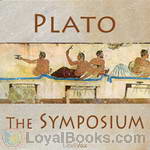 The Symposium
The Symposium
The Symposium (Ancient Greek: Συμπόσιον) is a philosophical book written by Plato sometime after 385 BCE. On one level the book deals with the genealogy, nature and purpose of love, on another level the book deals with the topic of knowledge, specifically how does one know what one knows. The topic of love is taken up in the form of a group of speeches, given by a group of men at a symposium or a wine drinking party at the house of the tragedian Agathon at Athens. Plato constructed the Symposium as a story within a story within a story... | |
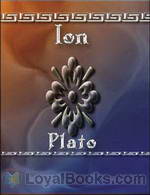 Ion
Ion
In Plato’s Ion, Socrates questions Ion on whether he should really claim laud and glory for his ‘rhapsodic’ recitals of Homer’s poetry. | |
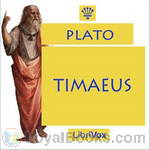 Timaeus
Timaeus
“Our intention is, that Timaeus, who is the most of an astronomer amongst us, and has made the nature of the universe his special study, should speak first, beginning with the generation of the world and going down to the creation of man…” ‘Timaeus’ is usually regarded as one of Plato’s later dialogues, and provides an account of the creation of the universe, with physical, metaphysical and ethical dimensions, which had great influence over philosophers for centuries following. It attributes the order and beauty of the universe to a benevolent demiurge – a ‘craftsman’ or god – fashioning the physical world after the pattern of an ideal, eternal one... | |
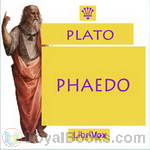 Phaedo
Phaedo
Plato's Phaedo is one of the great dialogues of his middle period, along with the Republic and the Symposium. The Phaedo, which depicts the death of Socrates, is also Plato's seventh and last dialogue to detail the philosopher's final days (the first six being Theaetetus, Euthyphro, Sophist, Statesman, Apology, and Crito).In the dialogue, Socrates discusses the nature of the afterlife on his last day before being executed by drinking hemlock. Socrates has been imprisoned and sentenced to death by an Athenian jury for not believing in the gods of the state and for corrupting the youth of the city... | |
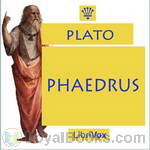 Phaedrus
Phaedrus
“For there is no light of justice or temperance, or any of the higher ideas which are precious to souls, in the earthly copies of them: they are seen through a glass, dimly…”Socrates and his earnest friend Phaedrus, enjoying the Athenian equivalent of a lunchtime stroll in the park, exchange views on love and on the power of words, spoken and written.Phaedrus is the most enchanting of Plato’s Erotic dialogues (capitalised in honour of the god). The barefoot philosopher urges an eager young... | |
 Apology
Apology
The Apology of Socrates is Plato's version of the speech given by Socrates as he unsuccessfully defended himself in 399 BC against the charges of "corrupting the young, and by not believing in the gods in whom the city believes, but in other daimonia that are novel" (24b). "Apology" here has its earlier meaning (now usually expressed by the word "apologia") of speaking in defense of a cause or of one's beliefs or actions (from the Ancient Greek ἀπολογία). | |
 Meno
Meno
Meno (Ancient Greek: Μένων) is a Socratic dialogue written by Plato. Written in the Socratic dialectic style, it attempts to determine the definition of virtue, or arete, meaning in this case virtue in general, rather than particular virtues, such as justice or temperance. The goal is a common definition that applies equally to all particular virtues. Socrates moves the discussion past the philosophical confusion, or aporia, created by Meno's paradox (aka the learner's paradox) with the introduction of new Platonic ideas: the theory of knowledge as recollection, anamnesis, and in the final lines a movement towards Platonic idealism.. (Introduction by Wikipedia) | |
 Laws
Laws
Νόμοι (Laws) is Plato's final dialogue written after his attempt to advise the tyrant Dionysius II of Syracuse. The dialogue takes place between: an Athenian Stranger (Socrates? A god in human form?); the quiet Lacedaemonian Megillus; and the Cretan Cleinias. The Stranger asks whether humans live to be more effective at waging war or if there is something more important a legislator should seek to achieve. During their pilgrimage Cleinias discloses his role in the establishment of a new colony... | |
By: Rabindranath Tagore (1861-1941) | |
|---|---|
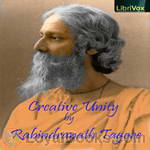 Creative Unity
Creative Unity
Gurudev Rabindranath Tagore talks of the many things he feels is necessary for creativity through joy of unity, he covers many topics like the creative ideal, makes comparisons of creativity between the east and the west, the spirit of freedom and about his idea of an University. | |
By: Ralph Waldo Emerson | |
|---|---|
 Nature
Nature
“Nature” is a short essay by Ralph Waldo Emerson published anonymously in 1836. It is in this essay that the foundation of transcendentalism is put forth, a belief system that espouses a non-traditional appreciation of nature. Recent advances in zoology, botany, and geology confirmed Emerson’s intuitions about the intricate relationships of nature at large. The publication of “Nature” is usually taken to be the watershed moment at which transcendentalism became a major cultural movement... | |
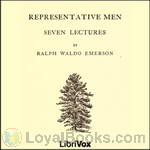 Representative Men
Representative Men
A series of biographical lectures originally published in 1850. Each chapter is a philosophical treatment of the life of an intellectual. The six representatives are Plato, Swedenborg, Shakespeare, Montaigne, Napolean and Goethe. (Introduction by S. Kovalchik) | |